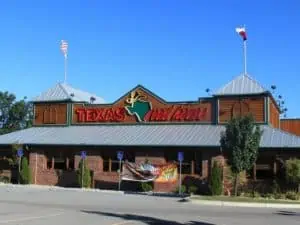Share the post "German Culture in Texas: Heritage in Fredericksburg and New Braunfels!"
Germany’s profound influence on Texas culture is evident as we explore its rich heritage. In rural Texas Hill Country, where mid-19th-century German settlers founded Fredericksburg and New Braunfels. These pioneers combined German and Texan cultures to create a unique and lasting legacy in Texas.
An exploration of these towns reveals a rich mosaic of German architecture, festivals, and cuisine. The smell of fresh-baked pretzels, lively polka music, and the intricate Fachwerk buildings that line the streets excite us. Texas’ rolling green landscapes have been lovingly infused with Germany, and we’re eager to explore its cultural gems.
Learning about the German immigrants who crossed the ocean to settle in Texas changes our historical landmarks as lasting impacts on the Texas Hill Country. It’s good to preserve and celebrate this shared heritage with generations of Texans who honor their German roots.
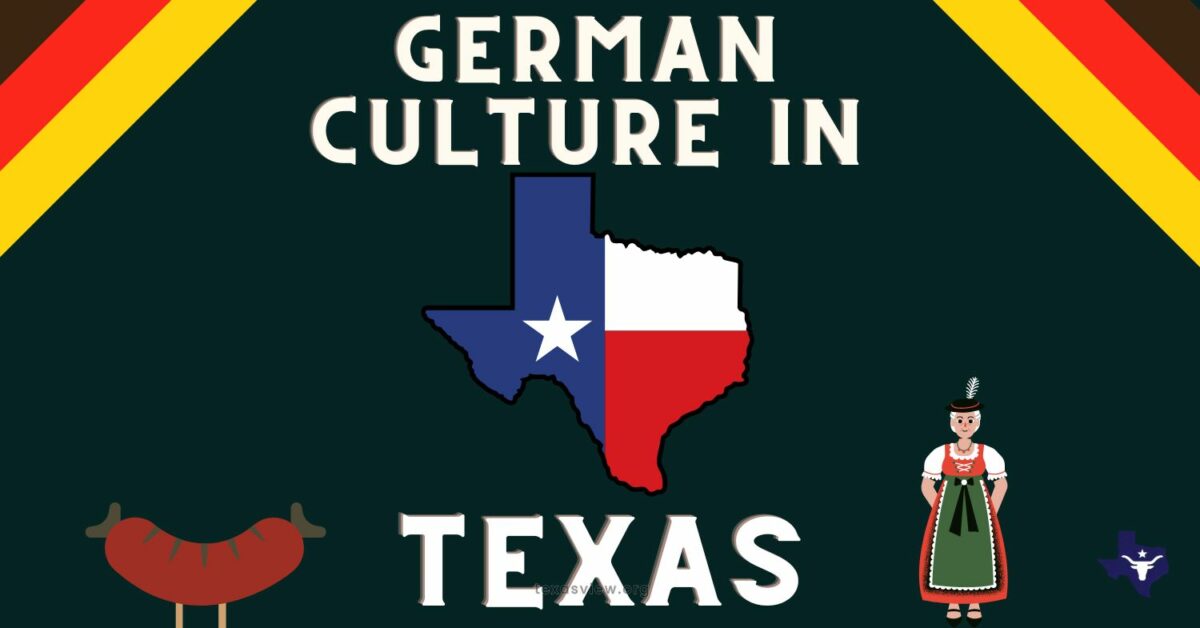
Early Migration and Settlement
Let’s Embark on a fascinating journey, tracing the steps of German immigrants who carved out new lives in Texas, leaving a European pattern on our cultural landscape. We explore the initial waves of German immigration and the founding of pivotal towns such as Fredericksburg and New Braunfels.
German immigration waves
The story begins in the 1830s when large groups of Germans started arriving in Texas. These settlers were escaping economic hardships and seeking new opportunities. They saw Texas as a land of prosperity. By 1845, during the peak of German immigration, Texas had officially become a U.S. state, creating a new chapter for these enterprising souls.
- 1830s–1840s: The peak period of German immigration
- 5,000 immigrants: The number arriving between October 1845 and April 1846 alone
Founding of Fredericksburg
Fredericksburg was founded on May 8, 1846, by Baron Otfried Hans von Meusebach. He renamed himself John O. Meusebach and established a peace treaty with the Comanche, allowing the settlers to thrive safely. The town now symbolizes German heritage and is famous for its quaint streets and authentic German cuisine.
- May 8, 1846: Fredericksburg founded
- John O. Meusebach, founder and facilitator of the Essential Peace Treaty
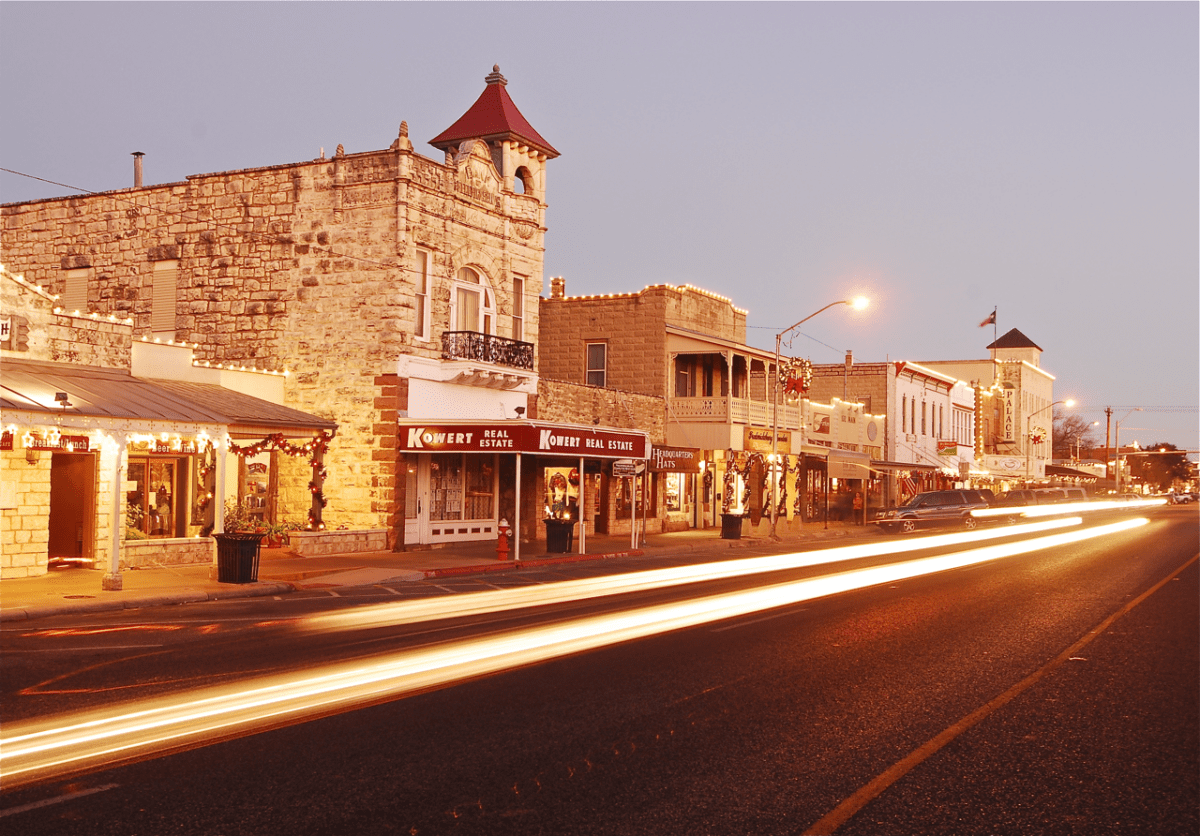
Founding of New Braunfels
In 1845, Prince Carl of Solms-Braunfels led German settlers to establish the town of New Braunfels. This charming town, named after his homeland, quickly became a hub of German culture in Texas. It’s great New Braunfels has retained Germanic traditions and enriching the Texan cultural mosaic.
- 1845: New Braunfels founded
- Prince Carl of Solms-Braunfels: The visionary leader behind the town
The history of early German migration and settlement is not just a thing of the past; it is part of the heart of Texas today, reminding us of our collective tenacity and cultural richness.
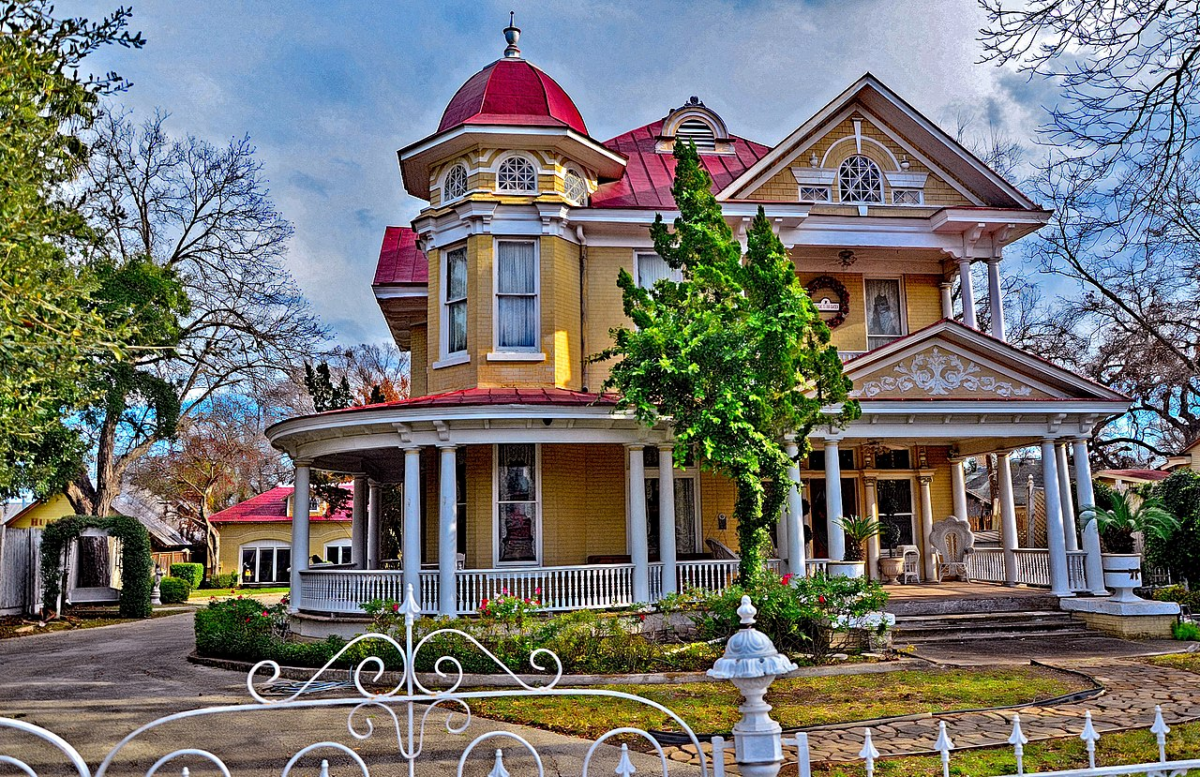
Cultural landmarks and architecture
We proudly showcase the vibrant German heritage through Texas’s iconic landmarks and architecture. These structures offer a glimpse into the past, melding German craftsmanship with Texan spirit.
Gillespie County Courthouse
Location: Fredericksburg, TX
Built: 1882
Architectural Style: Second Empire style
The Gillespie County Courthouse is a testament to our German roots in the heart of Fredericksburg. It’s characterized by its mansard roofs and ornate detailing, symbolizing the merging of cultures that defined its construction era.
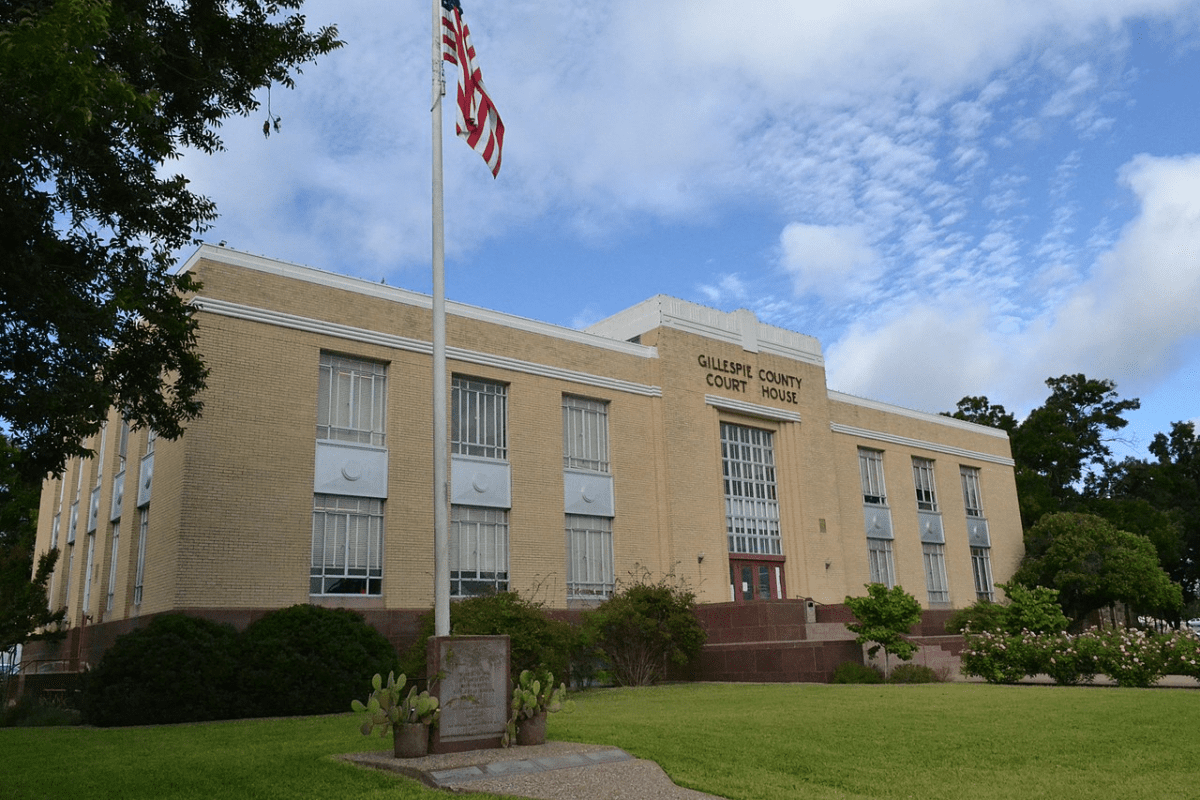
Gruene Historic District
Location: New Braunfels, TX
Recognized: Listed on the National Register of Historic Places
In the Gruene Historic District, we celebrate the preservation of our German Texan culture. The area showcases structures dating back to the 19th century, embodying the German influence on local architecture with its well-preserved buildings and community layout that continues to enchant visitors and locals alike.
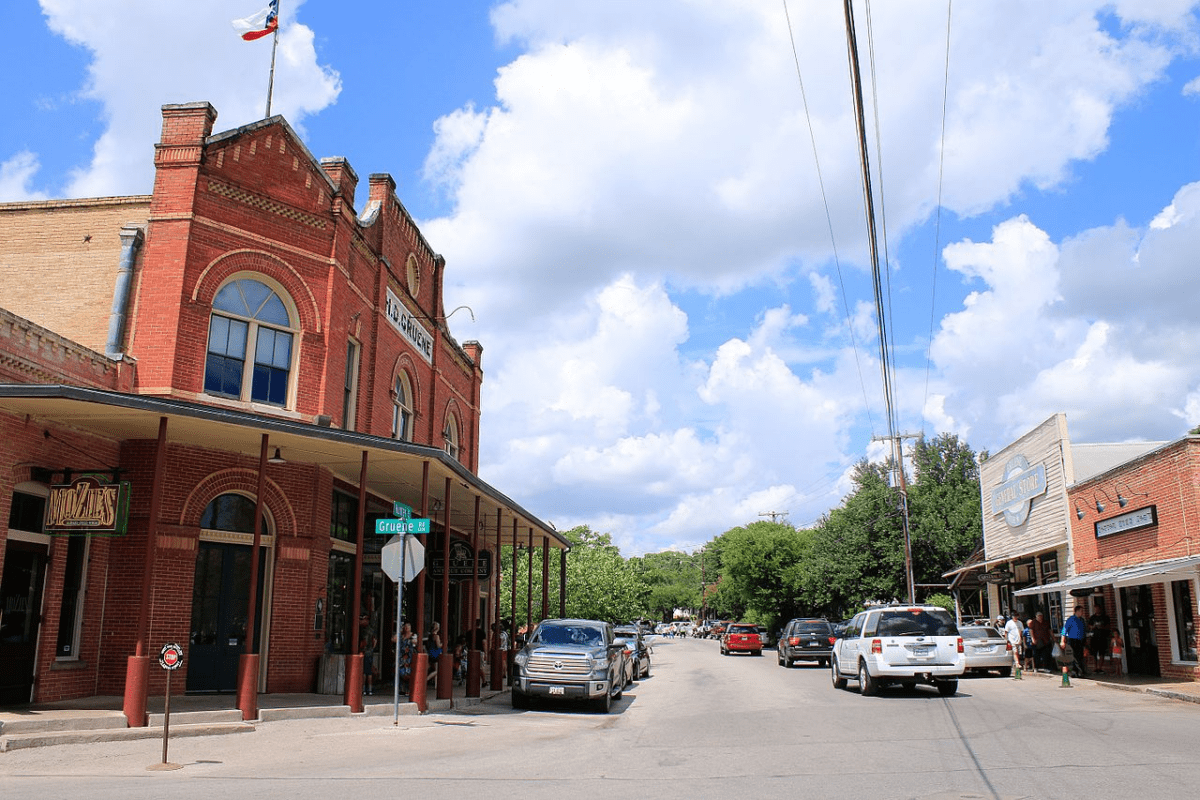
Customs and Traditions Preserved
In Texas, our shared German heritage thrives, a testament to the robust cultural preservation by the descendants of historic migrants in places like Fredericksburg and New Braunfels. We hold close to the customs and traditions that shape our unique identity in the Lone Star State.
Oktoberfest Celebrations
Oktoberfest sweeps through our towns every fall, enthusiastically echoing Bavaria’s most famous festival. We transform our streets into a vibrant tapestry of lederhosen and dirndls, with polka music filling the air. In Fredericksburg, our Oktoberfest is marked by traditional German music, dance, and a bountiful selection of beer and brats. The event is not merely a party but a homage to our ancestral celebrations.
German-Texan Cuisine
We’ve lovingly maintained German culinary traditions, blending them with Texan flavors. Our tables are graced with dishes like sauerbraten, a pot roast marinated for days and served with a hearty sauce, and schnitzel, a breaded cutlet that satisfies each crispy bite. The historic cafes in New Braunfels play a crucial role in keeping our German-Texan cuisine alive, offering an authentic taste that spans generations.
Language and Education
The commitment to German cultural preservation is evident in our efforts to sustain the German language. German education through community classes, celebrate bilingual success. In communities like ours, the German-Texas Heritage Society works diligently to ensure that our forebears’ language and educational traditions are remembered, actively practiced, and taught to new generations.
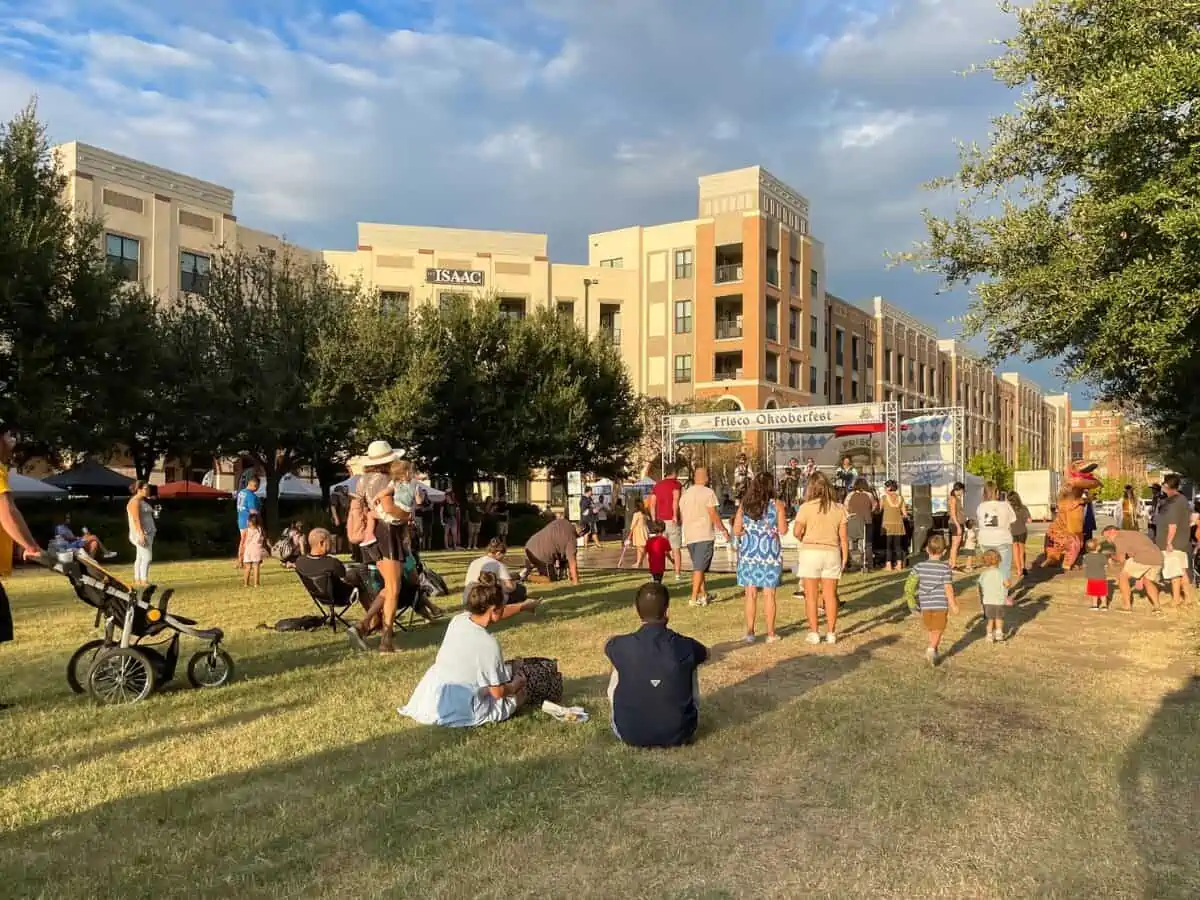
Influence on Texan Society
German settlers have profoundly help shape our Texan society. Their legacy is evident in our flourishing agriculture, respected industries, and spirited social and political realms.
Agriculture and Industry
German contributions to Texan agriculture are both foundational and revolutionary. We introduced robust farming techniques and crops that have become staples in the Texan diet. In towns like Fredericksburg and New Braunfels, Germans pioneered the cultivation of critical crops and livestock and established significant industries such as brewing and milling. These innovations fed our people and fueled Texas’s economic stability and growth.
Political and social contributions
Germans in Texas have been instrumental in shaping our political and social frameworks. They wanted to create a little piece of their homeland in Texas, so they established communities with structured civil services and rich cultural offerings. Our towns reflect German influence through public festival traditions like Oktoberfest, adding a vibrant aspect to our social life. In politics, figures of German descent have held influential positions, guiding Texas toward a more diverse and inclusive society.
Modern celebrations and festivals
We have a vibrant German heritage through many lively festivals, which fill the air with music and the aromas of traditional delicacies.
Wurstfest
New Braunfels becomes a hub of merriment with Wurstfest, a ten-day event that lures over a quarter of a million visitors. Picture this: an abundance of beer, delectable sausage, and toe-tapping German music that keeps our spirits high from the kick-off on November 4 through to November 13.
Manifest
When May rolls around, we don our festive attire and gather for Maifest, a tradition brimming with history and joy. Our community comes to life as we celebrate spring with authentic German dances, colorful parades, and foods that pay homage to our roots.

Preservation Efforts
To honor our German heritage in Texas, we’ve embraced history and made it a part of our story, ensuring that future generations can appreciate the past and culture that German migrants brought to places like Fredericksburg and New Braunfels.
Historical Societies
We take pride in local historical societies, such as the Sophienburg Museum and Archives, which diligently works to preserve the legacy of our forefathers. They curate an extensive collection of artifacts and offer educational programs chronicling the German settlement in New Braunfels. Additionally, we support initiatives to document and maintain the influence of German culture in areas like architecture, language, and customs.
Heritage Tourism
We invite visitors to participate in heritage tourism, immersing them in authentic experiences of German traditions in Texas. Sites like the landmark Inn State Historic Site provide a living history, reflecting the original German immigrant lifestyle. They actively promote events celebrating our unique Texas German dialect and traditional festivals, contributing to our local economies, and sharing our cherished cultural characteristics with the world.
Notable Personalities
German influence stands out prominently in our vibrant Texan tapestry, especially in the cherished stories of those who’ve left an indelible mark on our culture and history.
Prominent German-Texan figures
- John O. Meusebach: We can only speak of German-Texan heritage by mentioning John O. Meusebach, Fredericksburg’s founder and a peaceman who forged a unique treaty with the Comanche nation. His legacy includes the establishment of a German enclave that thrives in cultural richness to this day.
- Prince Carl of Solms-Braunfels: The visionary Prince Carl laid the foundation for New Braunfels, another town with robust German roots, mirroring Fredericksburg. His efforts in leading German settlers to Texas were pivotal in shaping the German-Texan community.
German Texans’ contributions to Texas’s development can’t be overstated. Leaders like Meusebach and Prince Carl shaped history through their settlements and diplomacy.
Share the post "German Culture in Texas: Heritage in Fredericksburg and New Braunfels!"
Christian Linden is a seasoned writer and contributor at Texas View, specializing in topics that resonate with the Texan community. With over a decade of experience in journalism, Christian brings a wealth of knowledge in local politics, culture, and lifestyle. He holds a Bachelor's degree in Communications from the University of Texas. When he's not writing, Christian enjoys spending weekends traveling across Texas with his family, exploring everything from bustling cities to serene landscapes.




